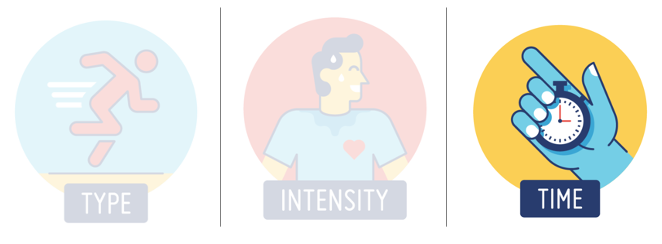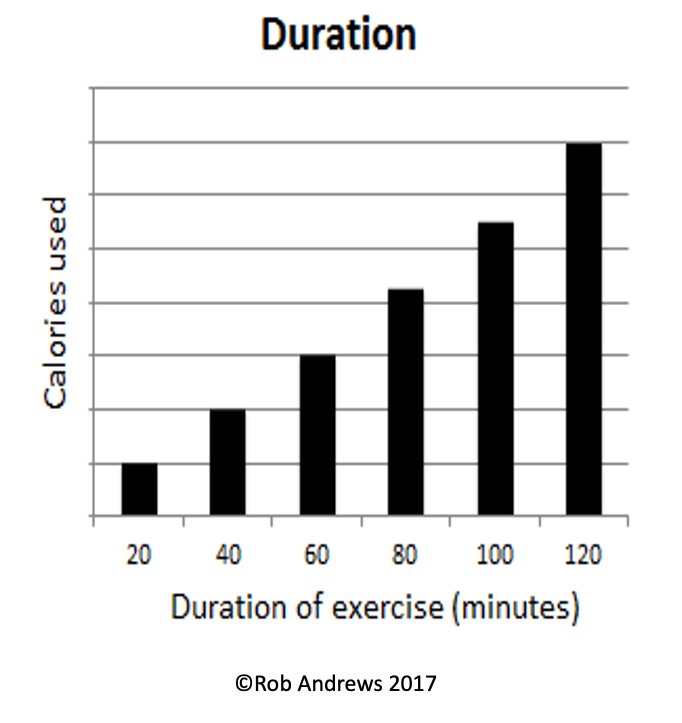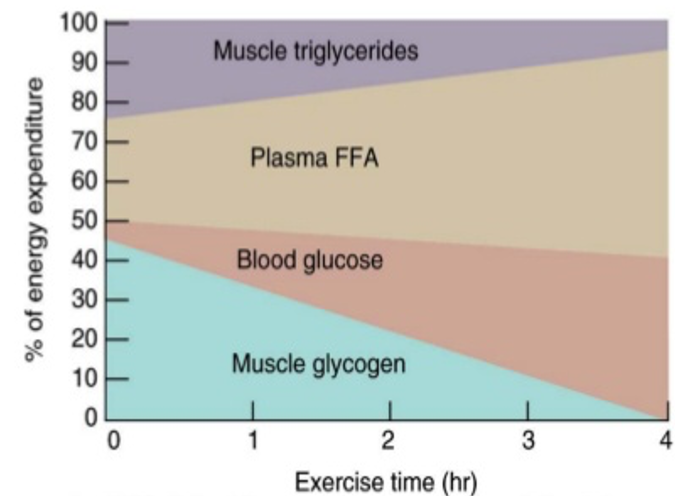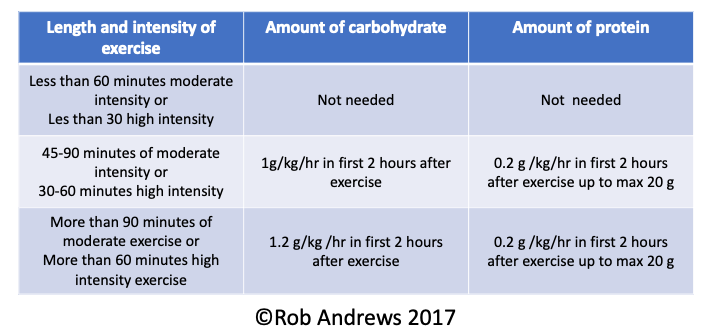 Advice for Professionals
Advice for Professionals

Defining length of activity
It is important to understand for how long someone is exercising for because:
1. | The length of exercise will determine how much fuel needs to be taken when exercising. |
2. | The length of exercise will determine how much fuel needs to be taken after exercise |
3. | The total amount of exercise done per day will determine what the carbohydrate and protein intake need to be on that day |
Effect of length of exercise on fuel requirement during exercise
The longer an exercise goes on the more calories will be used (see figure 1).
Figure 1 - amount of calories used for length of exercise

Figure 2 below shows what fuels are used for exercise over a 4 hour period. With time muscle triglycerides and muscle glycogen contribute less to energy expenditure meaning that the longer an exercise goes on the more reliant it is on blood glucose and free fatty acids.
Figure 2 - substrate used for length of exercise

Effect of length of exercise on fuel requirements post exercise
During exercise, glycogen stores from the muscles and then the liver are broken down to glucose, which is then used by the muscles (see Physiology of exercise section of this website. At the end of exercising, it is important to replenish these glycogen stores. This is should be done by eating within 45-90 minutes after finishing exercise (see Fuel and fluid for exercise section of this website).
The amount of carbohydrate and protein needed to be taken will depend on the length of exercise (see table 1 below).
If these recovery meals are not taken, then patients will fatigue more easily when they next exercise (less fuel available) and will not see as much improvement in their fitness. They will also be at greater risk of hypoglycaemia after their exercise.
Table 1 - amount of carbohydrate and protein needed to refuel after exercise

Effect of length of exercise on total carbohydrate and protein intake
A healthy, balanced diet is important when exercising regularly. Ensuring adequate daily carbohydrate intake will guarantee muscles have a source of fuel during exercise, whilst an adequate protein intake will promote the muscles’ recovery after exercise. Understanding total energy requirements for your patient can help you to advice on meals and snacks for exercise.
Both carbohydrate and protein requirements are based on four things
1. | Type of exercises done |
2. | Intensity of the exercises |
3. | Duration of exercises |
4. | Weight |
For more information on this see Fuel and fluid for exercise section of this website.
To return to Defining type, duration and activity of exercise click here.
To go onto physiology of exercise click here.
